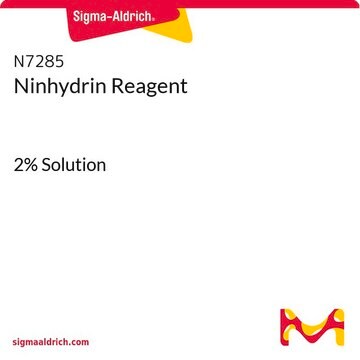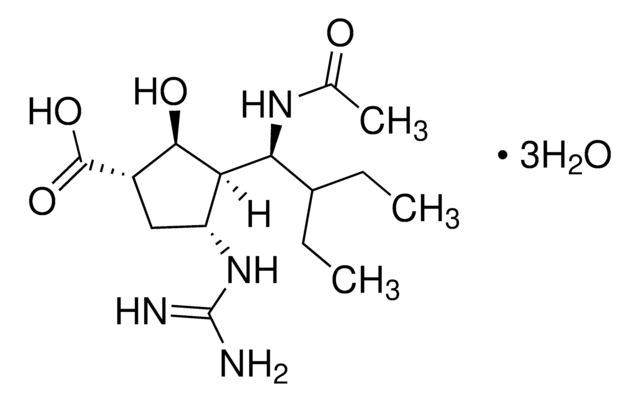21-1510
Ninhydrin
SAJ special grade, ≥98.0%
Sinónimos:
1,2,3-Indantrione monohydrate, 2,2-Dihydroxy-1,3-indanedione, Trioxohydrindene monohydrate
About This Item
Productos recomendados
grade
SAJ special grade
assay
≥98.0%
form
solid
availability
available only in Japan
mp
250 °C (dec.) (lit.)
SMILES string
OC1(O)C(=O)c2ccccc2C1=O
InChI
1S/C9H6O4/c10-7-5-3-1-2-4-6(5)8(11)9(7,12)13/h1-4,12-13H
InChI key
FEMOMIGRRWSMCU-UHFFFAOYSA-N
¿Está buscando productos similares? Visita Guía de comparación de productos
Application
signalword
Warning
hcodes
Hazard Classifications
Acute Tox. 4 Oral - Eye Irrit. 2 - Skin Irrit. 2
Storage Class
11 - Combustible Solids
wgk_germany
WGK 3
flash_point_f
Not applicable
flash_point_c
Not applicable
ppe
dust mask type N95 (US), Eyeshields, Gloves
Certificados de análisis (COA)
Busque Certificados de análisis (COA) introduciendo el número de lote del producto. Los números de lote se encuentran en la etiqueta del producto después de las palabras «Lot» o «Batch»
¿Ya tiene este producto?
Encuentre la documentación para los productos que ha comprado recientemente en la Biblioteca de documentos.
Nuestro equipo de científicos tiene experiencia en todas las áreas de investigación: Ciencias de la vida, Ciencia de los materiales, Síntesis química, Cromatografía, Analítica y muchas otras.
Póngase en contacto con el Servicio técnico








